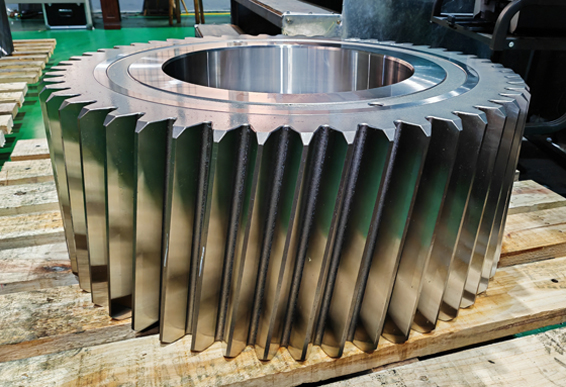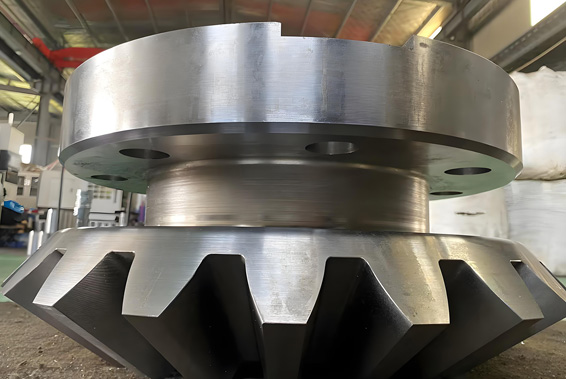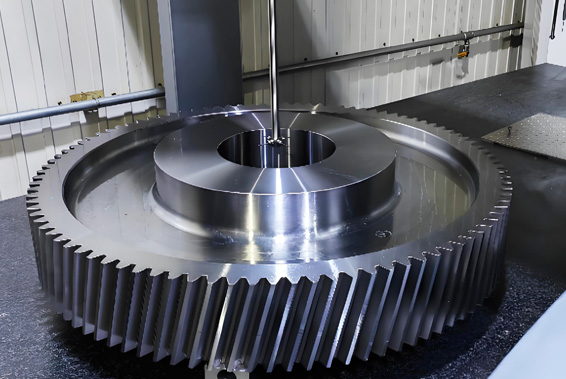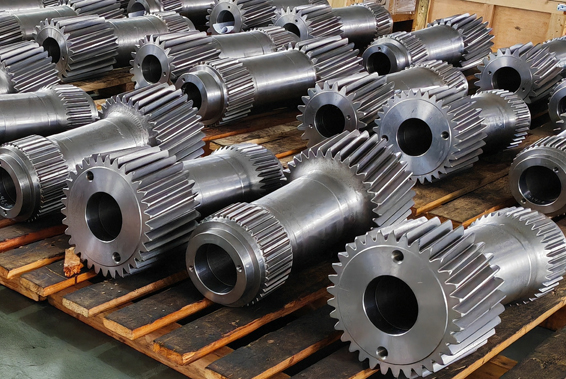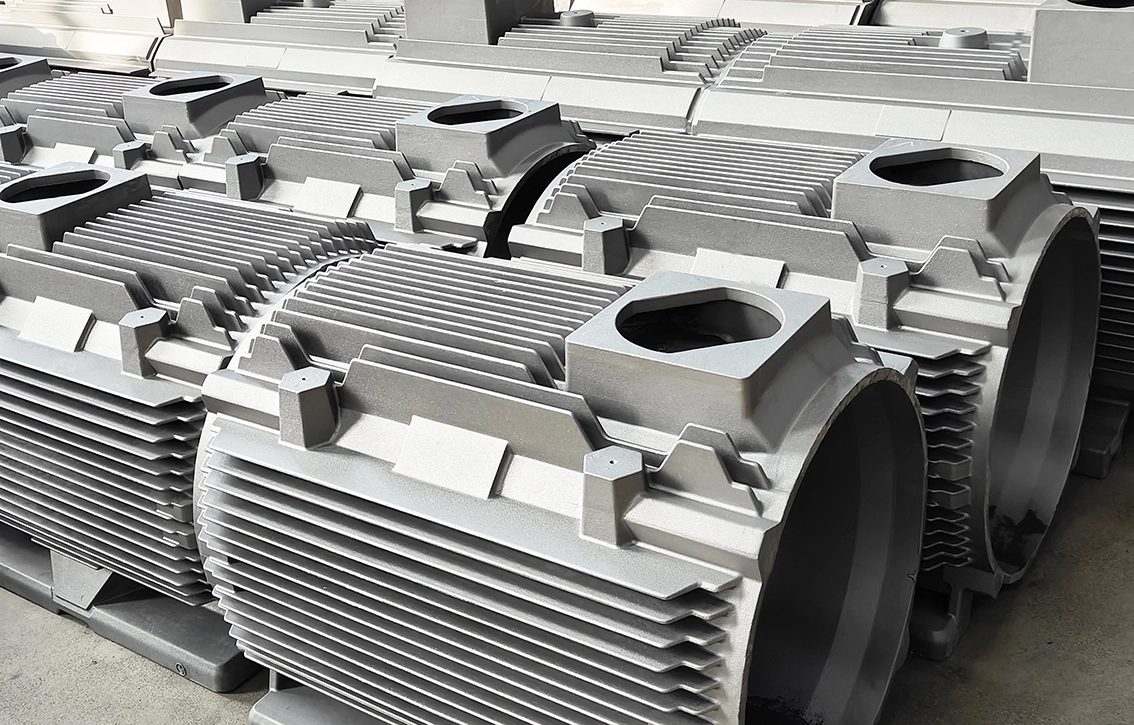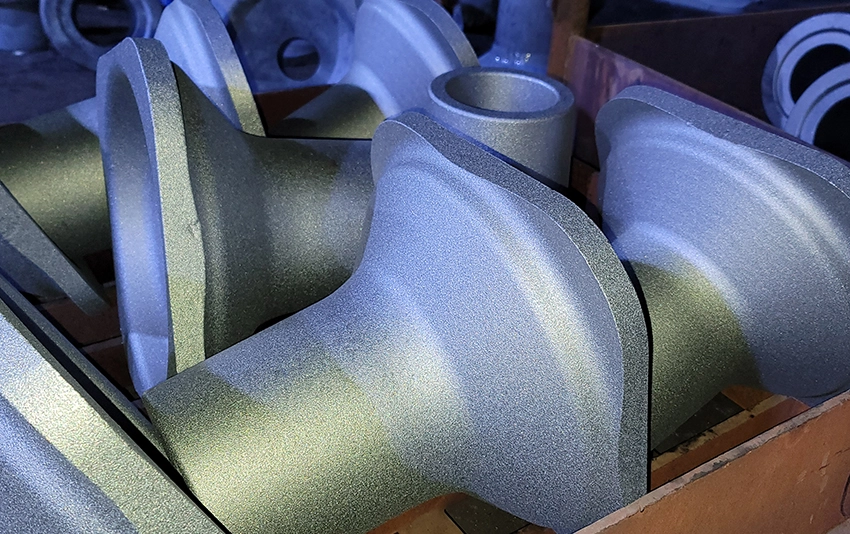Forged Spur Gears: Precision-Crafted for Superior Performance
Product Description and Function
Forged spur gears are cylindrical components with straight-cut teeth, designed to transmit rotational motion and torque between parallel shafts. Their precise tooth engagement ensures smooth operation, minimal backlash, and efficient power transfer, making them essential for applications like gearboxes, conveyors, mining equipment, and industrial machinery. WALKSON’s forged spur gears are built for high load capacity, wear resistance, and long-term reliability, even in extreme conditions.
Key Features:
· High Load Capacity: Forged construction ensures superior strength for heavy-duty applications.
· Precision Performance: Straight teeth deliver low-noise operation and accurate speed control.
· Versatility: Suitable for low-speed to high-torque systems across industries.
· Customizability: Tailored dimensions, tooth profiles, and materials to meet specific needs.
Commonly Used Material Grades (EN and ASTM Standards)
WALKSON selects premium materials to ensure our forged spur gears meet stringent performance standards, with material choices guided by application demands like load, speed, and environment. Below are commonly used material grades compliant with EN and ASTM standards:
· EN Standards:
· EN 10083-2 C45E: Medium carbon steel with good strength and toughness for general-purpose gears.
· EN 10083-3 42CrMo4: Chromium-molybdenum alloy steel with excellent fatigue resistance, ideal for high-load applications.
· EN 10083-3 34CrNiMo6: High-strength alloy steel with superior toughness, used in heavy-duty gears for mining and energy.
· ASTM Standards:
· ASTM A29 1045: Medium carbon steel with good machinability and wear resistance for industrial gears.
· ASTM A322 4140: Chromium-molybdenum steel offering high strength for demanding applications.
· ASTM A322 4340: Nickel-chromium-molybdenum alloy steel with exceptional toughness for critical components.
For specialized needs, WALKSON offers materials like stainless steel (e.g., ASTM A182 F304/F316) or high-manganese steel for corrosion resistance or extreme wear. All materials comply with EN 10293, EN 10228, ASTM A788, ensuring traceability and quality.
Modern and Standardized Manufacturing Process
WALKSON employs a state-of-the-art manufacturing process for forged spur gears, adhering to international standards for precision and reliability. Each stage is rigorously controlled, from raw material selection to final inspection, with quality assurance protocols like APQP (Advanced Product Quality Planning), PPAP (Production Part Approval Process), PFMEA (Process Failure Mode and Effects Analysis), and First Article Trial (FAT) implemented to ensure consistency and mitigate risks before batch production.
Manufacturing Process Steps:
· Raw Material Inspection:
· Standards: EN 10204 (Type 3.1/3.2 certification), ASTM A388.
· Process: Chemical composition analysis via spectrometry and ultrasonic testing (UT) detect internal defects.
· Equipment: Optical emission spectrometers, ultrasonic flaw detectors.
· Forging:
· Standards: EN 10243-1, ASTM A788, ISO 2768.
· Process: Closed-die forging at controlled temperatures enhances grain structure and mechanical properties, with minimal material waste.
· Equipment: Hydraulic forging presses (up to 15,000 tons), induction heating furnaces.
· Heat Treatment:
· Standards: EN 10083, ASTM A29, SAE J404, ISO 6336.
· Process:
· Normalizing: Refines grain structure for improved machinability and uniformity.
· Quenching and Tempering: Achieves hardness (200–350 HB) and toughness for high-load applications.
· Carburization: Diffuses carbon into the surface for a hard, wear-resistant layer (60–62 HRC) with a tough core, ideal for heavy-duty gears.
· Nitriding: Forms a hard surface case (65–70 HRC) with excellent fatigue resistance and minimal distortion, suited for precision gears.
· Nitrogen Case Hardening: Enhances surface hardness and corrosion resistance for harsh environments.
· Vacuum Heat Treatment: Conducted in an oxygen-free environment to prevent oxidation, ensuring clean surfaces and precise metallurgical properties for aerospace and energy applications.
· Equipment: Continuous heat treatment furnaces, vacuum furnaces, nitriding furnaces, quenching tanks, induction heating systems.
· Quality Control: Automated monitoring of temperature, time, and atmosphere prevents distortion. Hardness testing (Rockwell/Brinell) and metallographic analysis verify case depth and microstructure.
· Machining:
· Standards: ISO 2768, DIN 3962 (gear quality class 5–8).
· Process: Advanced machining techniques ensure precise tooth profiles and surface finish (Ra 0.4–1.6). Processes include:
· Gear Hobbing: Performed on Gleason machines for high-precision tooth cutting, ensuring accurate gear geometry.
· Gear Shaping: Utilizes Gleason equipment for complex tooth profiles and internal gears, offering flexibility for custom designs.
· Precision Grinding: Conducted on Kapp Niles grinders to achieve superior surface finish and tight tolerances, enhancing gear performance and longevity.
· CNC Milling: Supports additional machining for gear blanks and features.
· Equipment: Gleason gear hobbing and shaping machines, Kapp Niles precision grinders, 5-axis CNC milling machines, CNC gantry machining centers (up to 20m long, 5m wide, 4m high).
· Surface Treatment:
· Standards: ISO 12944, ASTM B117.
· Process: Optional treatments like coating or shot peening enhance wear and corrosion resistance.
· Equipment: Shot blasting machines, coating systems.
· Final Inspection and Testing:
· Standards: EN 10228, ASTM A275, DIN EN ISO 16859.
· Process: Dimensional checks, non-destructive testing (NDT), and performance testing ensure specification compliance. Gear-specific inspections include:
· Gear Inspection: Conducted using Zeiss CMM for precise dimensional verification and Gleason GMM for comprehensive gear metrology, including tooth profile, pitch, and runout.
· Equipment: Zeiss coordinate measuring machines, Gleason GMM gear measuring machines, magnetic particle testers, 3D laser scanners.
Quality Assurance Protocols:
· APQP: Aligns manufacturing with customer needs through structured planning and risk management.
· PFMEA: Identifies and mitigates potential failure modes in forging and machining processes.
· PPAP: Provides comprehensive documentation (control plans, process flow, capability studies with Cpk ≥ 1.33) to validate production readiness.
· First Article Trial (FAT): Clients witness testing of the first production article to verify compliance with design and performance requirements before full-scale production.
WALKSON’s digitalized workflow, supported by MAGMASOFT for forging simulation and 3D printing for prototyping, ensures precision and efficiency. Compliance with IATF 16949 and AS 9145 standards meets automotive and aerospace requirements.
Testing Procedures and Equipment
WALKSON conducts comprehensive testing to ensure forged spur gears meet performance and quality standards, with protocols aligned to international guidelines. Clients are invited to witness tests, and third-party inspectors designated by clients are welcomed for independent oversight.
Specific Testing Protocols:
· Non-Destructive Testing (NDT):
· Standards: EN 10228-3, ASTM A275, ASTM E709.
· Tests:
· Ultrasonic Testing (UT): Detects internal defects like voids.
· Magnetic Particle Testing (MT): Identifies surface and near-surface cracks.
· Radiographic Testing (RT): Verifies internal integrity for critical gears.
· Equipment: Ultrasonic flaw detectors, magnetic particle benches, X-ray machines.
· Frequency: 100% for critical components; sampling per ASTM E1444 for standard parts.
· Dimensional Inspection:
· Standards: DIN 3962, ISO 1328 (gear accuracy grades 5–8).
· Tests: Measures tooth profile, pitch, and runout using Zeiss CMM and Gleason GMM for precise gear metrology.
· Equipment: Zeiss CMM, Gleason GMM, 3D laser scanners.
· Tolerance: ±0.02 mm for critical dimensions.
· Mechanical Testing:
· Standards: ASTM E8, EN 10002-1.
· Tests:
· Tensile Testing: Verifies yield strength and elongation.
· Hardness Testing: Ensures surface/core hardness (200–350 HB per EN 10083).
· Impact Testing: Confirms toughness (Charpy V-notch).
· Equipment: Universal testing machines, Rockwell/Brinell hardness testers, Charpy impact testers.
· Performance Testing:
· Standards: ISO 6336, AGMA 2001.
· Tests: Load testing verifies torque capacity and fatigue life; noise/vibration analysis ensures smooth operation.
· Equipment: Gear test rigs, vibrometers.
· Conditions: Simulated loads up to 1.5x rated capacity.
· Process Capability Analysis:
· Standards: AIAG SPC Manual, ISO 21747.
· Tests: Statistical process control (SPC) ensures Cpk ≥ 1.33; measurement system analysis (MSA) validates inspection reliability.
· Equipment: SPC software, gauge R&R tools.
WALKSON’s testing facilities are ISO 17025-accredited, ensuring traceability. Clients receive detailed reports, including dimensional layouts, material certificates, and NDT results, as part of PPAP submissions.
Advantages of Choosing WALKSON
Partnering with WALKSON offers unparalleled benefits for your forged spur gear needs:
· Industry Expertise: Extensive experience supplying gears to mining, automotive, and energy sectors, with deep knowledge of global standards.
· Advanced Machining: Utilization of Gleason and Kapp Niles equipment for hobbing, shaping, and grinding ensures unmatched precision.
· Precision Inspection: Zeiss CMM and Gleason GMM deliver rigorous gear metrology for quality assurance.
· Comprehensive Solutions: From design to delivery, we streamline processes to reduce lead times and costs.
· Cutting-Edge Technology: Tools like MAGMASOFT and 3D laser scanning ensure efficiency and accuracy.
· Robust Quality Assurance: APQP, PPAP, PFMEA, and FAT protocols guarantee defect-free products, with transparency for clients and third-party inspectors.
· Tailored Customization: Bespoke gear designs and materials, supported by rapid prototyping and reverse engineering.
· Cost Efficiency: Optimized processes deliver competitive pricing without compromising quality.
· Dedicated Support: Prompt, personalized service via info@walkson.com (mailto:info@walkson.com) or WhatsApp/WeChat.
Contact WALKSON Today
Power your machinery with WALKSON’s precision-forged spur gears, crafted to exceed expectations. Our commitment to quality, innovation, and client satisfaction makes us the ideal partner for global industries. Contact us at info@walkson.com (mailto:info@walkson.com) or via WhatsApp/WeChat to discuss your needs, request a quote, or schedule a consultation. Choose WALKSON for world-class forged spur gears tailored to your success.
 English
English  Deutsch
Deutsch  français
français  русский
русский  فارسی
فارسی  العربية
العربية  Español
Español  日本語
日本語  한국어
한국어  italiano
italiano  português
português  dansk
dansk  Suomi
Suomi 





